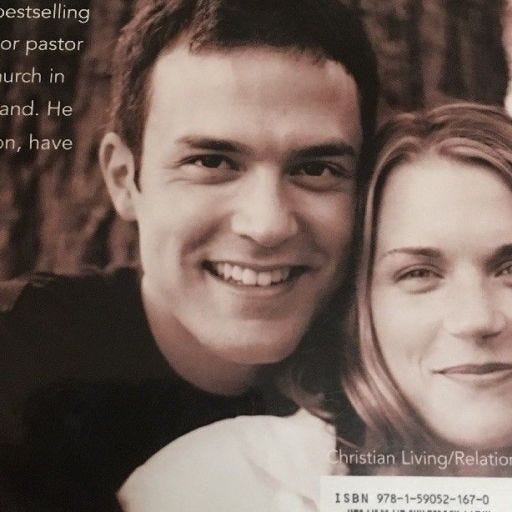Curious Reads: I Kissed The Patriarchy Goodbye
Shannon Harris, Ex-Wife to the Prince of Purity Culture, has left behind evangelical womanhood.
Hello friend, Liz here.
#1 Today’s “top of the fold” story is about leaving behind stale evangelical conceptions of womanhood.
That is, Joshua Harris’s ex-wife, Shannon Harris, once married to the prince of purity culture, is telling her story and putting “complementarianism” behind her.
Read “I Kissed Biblical Womanhood Goodbye,” an interview with Shannon Harris, by Sarah Stankorb at Slate.
(Also, here’s a brief primer on “complementarianism” theology, which is another name for patriarchy. ;-))
Here are the highlights:
“For years, Shannon Harris’ church expected her to be an exemplar for submissive, biblical womanhood. She was married to Joshua Harris, the famed author of anti-dating handbook I Kissed Dating Goodbye, which sold over a million copies after its publication in 1997 and, in advising chaste courtship instead of dating, became a mainstay of American purity culture. Looking back, Shannon describes him then as a ‘kind of abstinence pop star.’
“As Joshua’s platform grew, Shannon bec…



